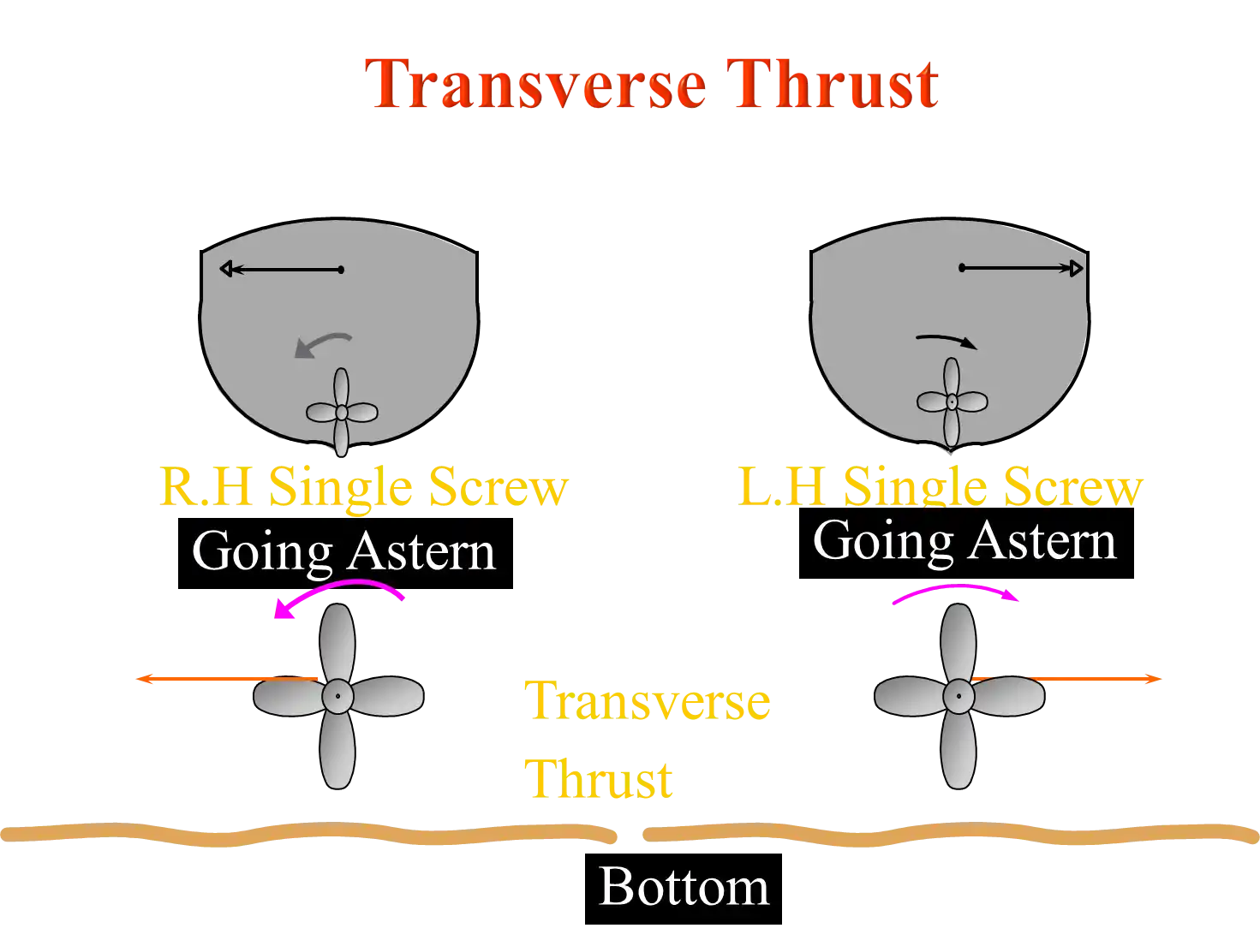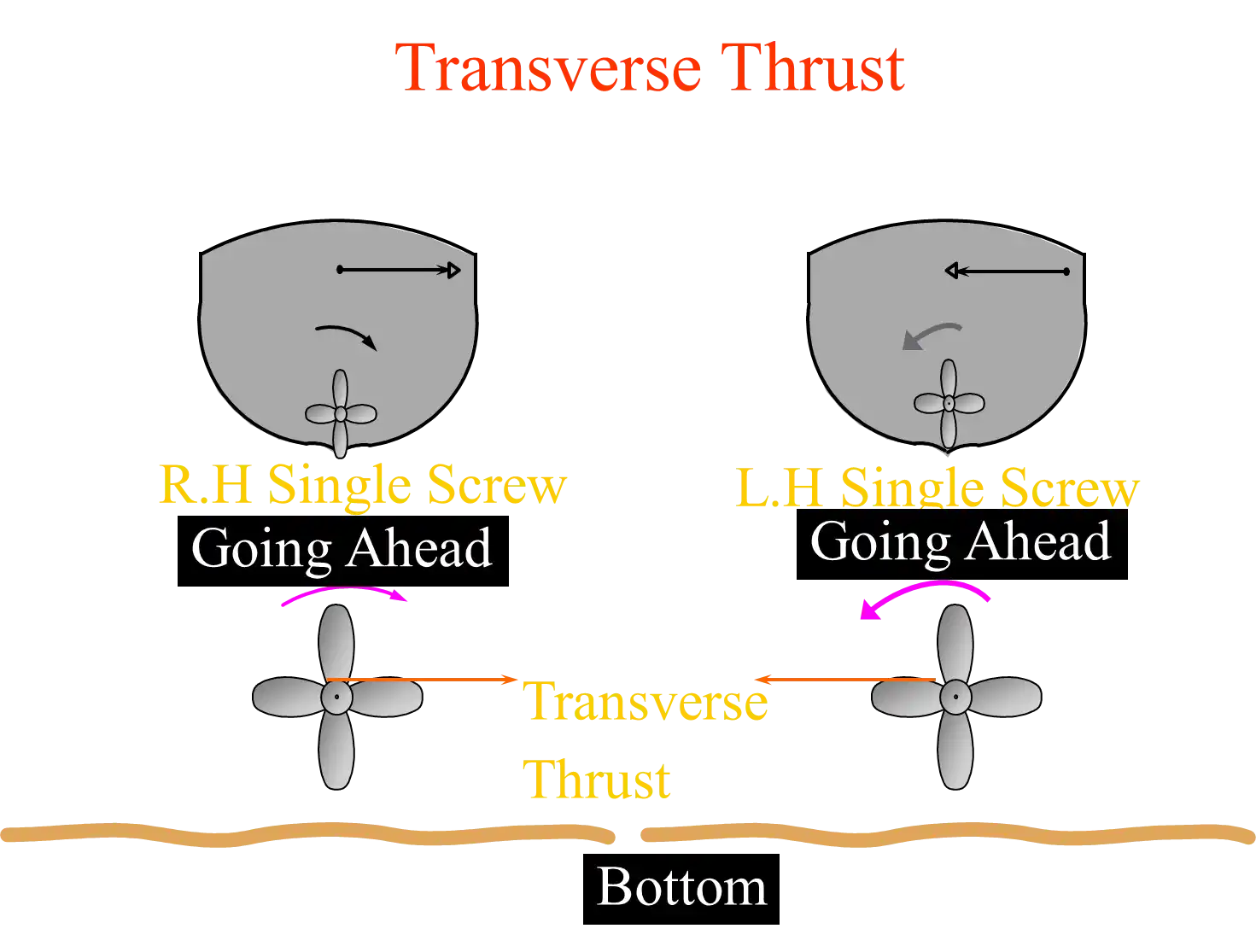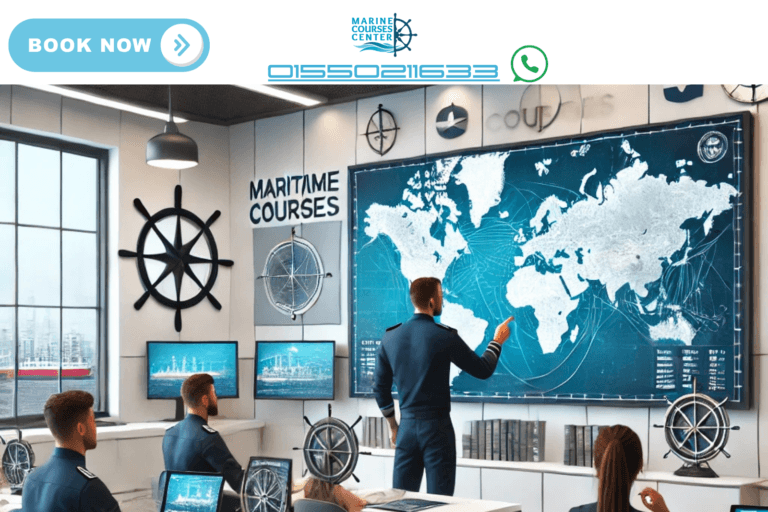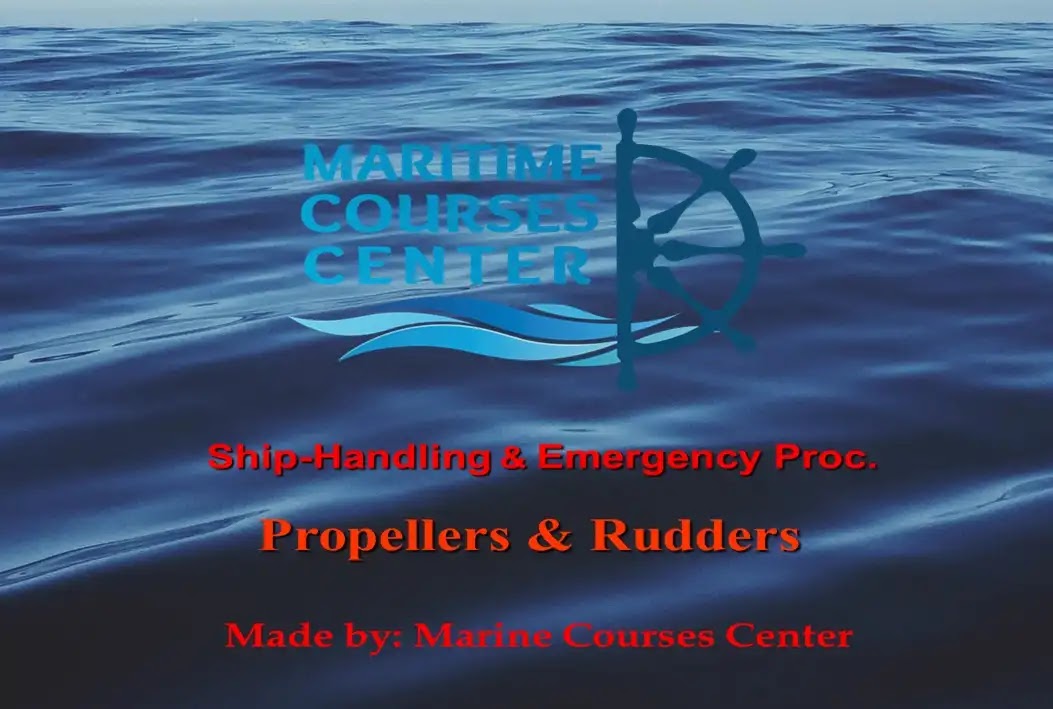
ship handling | Part 1 | boat handling | propellers | fixed propellers
welcome to Marine Courses Center today we will start to discuss ship handling or boat handling so our lecture today about propellers and types of Propellers such as fixed propellers
what are Factors in ship Handling ?
1-1 Controllable
1- Main engine power
2- Propeller or Propellers. Fixed or controllable pitch
3- Anchors
4- Mooring ropes
5- Rudder movement
6- Bow thrust( if fitted)
7- Bow Rudder (if fitted)
8- Tugs
1-2 uncontrollable
1- The weather
2- Tide and /or current
3- Geographical features such as floating obstructions, shallow
water , bridges and ice accretion.
4- Traffic Density
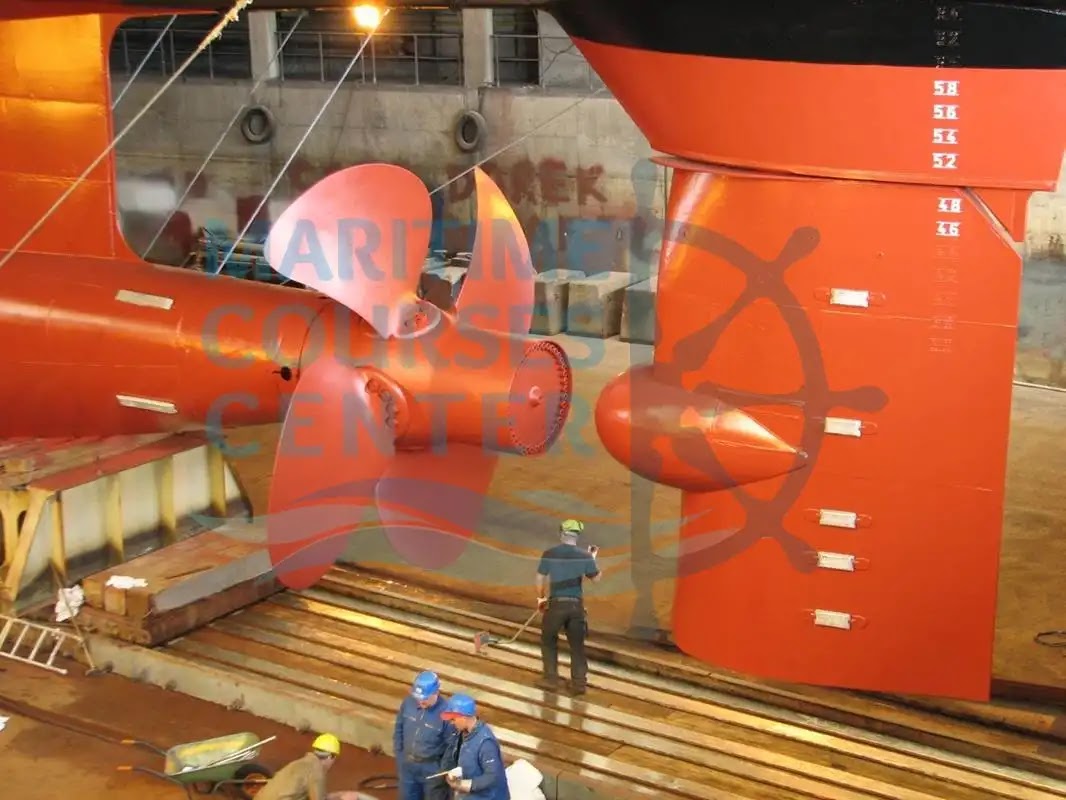
Propellers

1- Provides the most important source of force on a ship which makes her go forward and backward.
2- Some merchant ships have 1 propeller (single screw) And some have 2 propellers (Twin screw).
3- All propellers named as per its rotating direction (right or left) when the ship is going ahead.
4- The propeller which rotates to right When the ship moves ahead is called right handed propeller ( R.H).
5-The propeller which rotates to left When the ship moves ahead is called left handed propeller ( L.H).
FIXED PROPELLERS
1- Found on most types of cargo ships (general cargo, tankers, bulk carriers, etc).
2- Cannot change pitch of propeller
3- Thrust (speed) controlled by changing speed of the propeller shaft.
4- you must stop shaft to go backwards by change the direction of shaft
5- It is more efficient only at one rotational speed and the designed load condition.
We have two types of propeller for the motion
1- Right hand fixed propeller
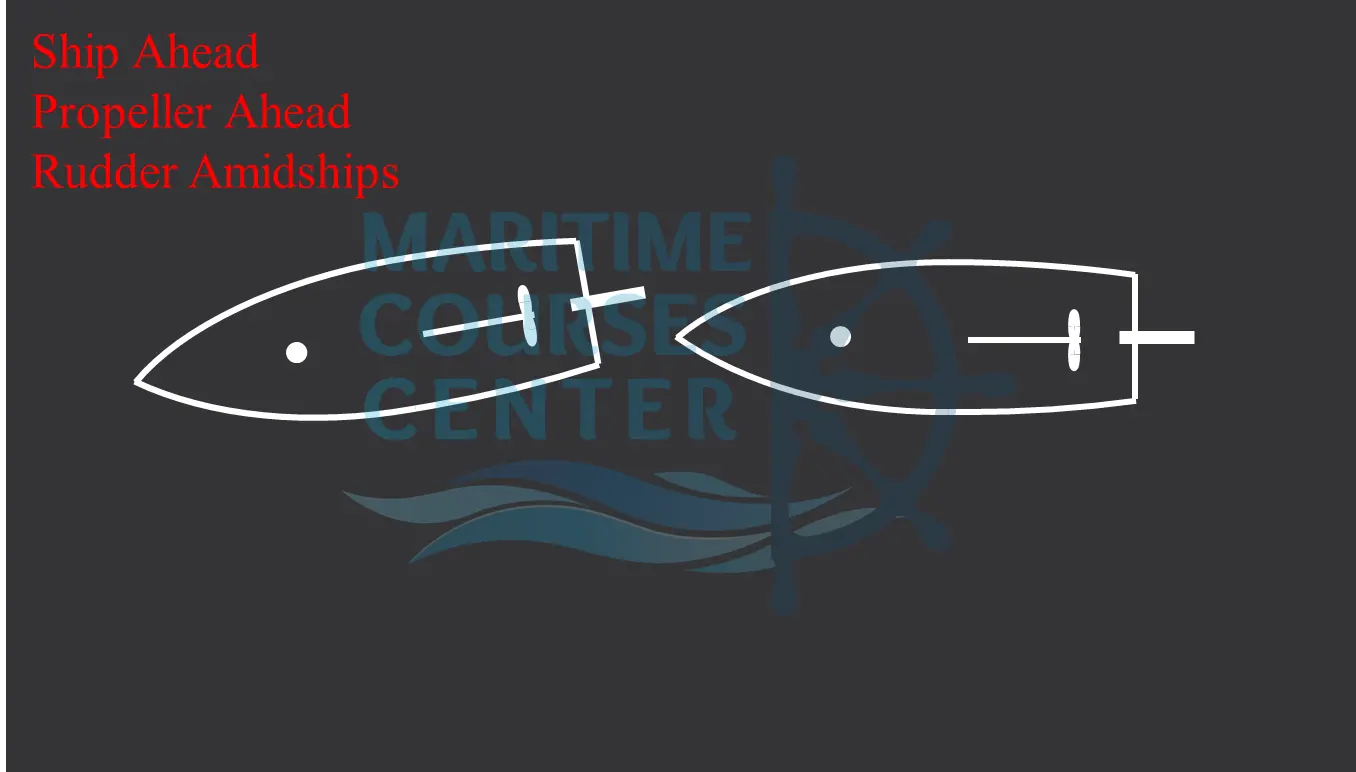
Ahead :-
Stern is moving to starboard then the bow (fore part ) may be seen to move to port.
Stern :-
Stern is moving port side then the bow (fore part ) is moving to starboard.
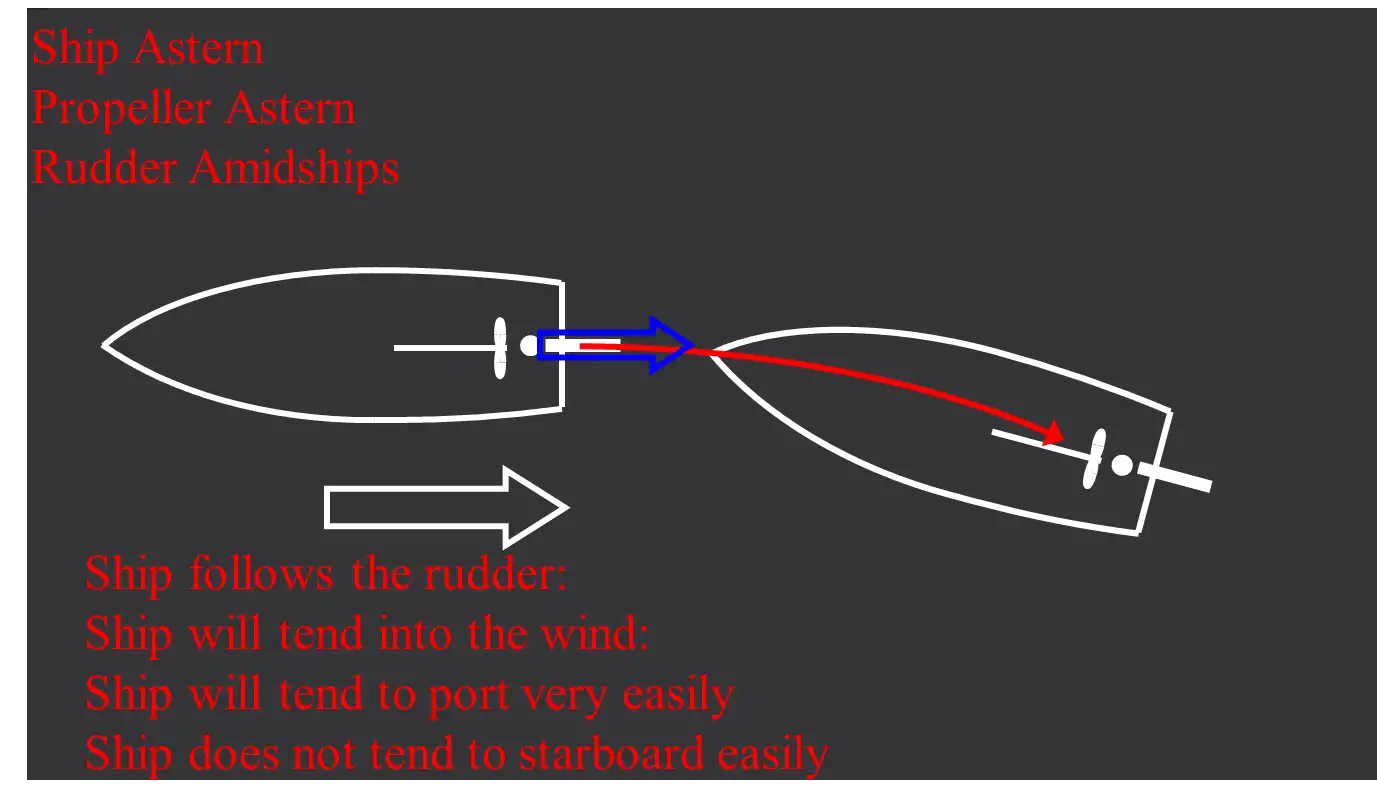
2- Left – hand fixed propeller
Ahead :-
Stern is moved to port then the bow may be seen to move to starboard.
Stern:-
Stern is moved to starboard side then the bow is moved to port.
Twin screw propellers
1- All twin propellers named as per their rotating direction (outward or inward) when the ship is going ahead.
2- Could both be Fixed Pitch Propellers (FPP) or Controllable Pitch Propellers (CPP).
3- Give very high advantage for ship’s manoeuvrer.
4- No transverse thrust for twin screw propellers when we use them both ahead or both astern.
Controlling Propeller Thrust
1- Depends on type of propellers Fixed Pitch Propellers (FPP)
2- Thrust (speed) controlled by changing the speed (RPM) of the propeller shaft.
3- The propeller shaft changing its spin direction to the opposite direction to go backward.
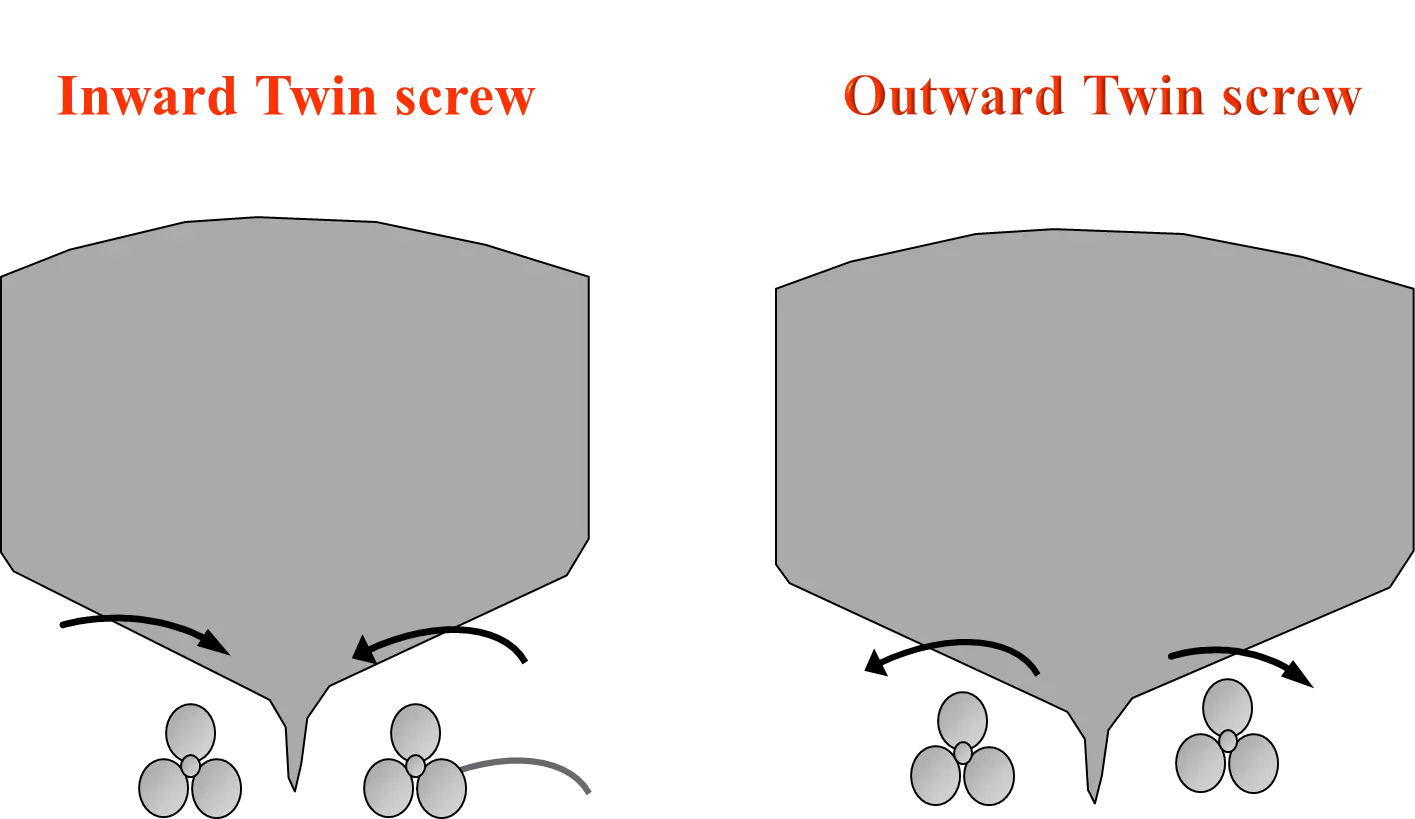

Frictional Wake Thrust:
This Is The Thrust Coming From Forward To Aft During The Ships Move ahead.
This Thrust Increases By Increasing The Ships Speed, as A result This Thrust Become Heavier To The Extent It Overcomes The Transverse Thrust Till It Vanish Away Keeping The For &Aft Thrust The Dominant One Making The Ship Moving Steady Ahead.
The effect of propellers:-
1- Fore And Aft thrust Responsible for the heading movement
2- Transverse thrust Responsible for the transverse movement
of the stern at the beginning of prop revolving
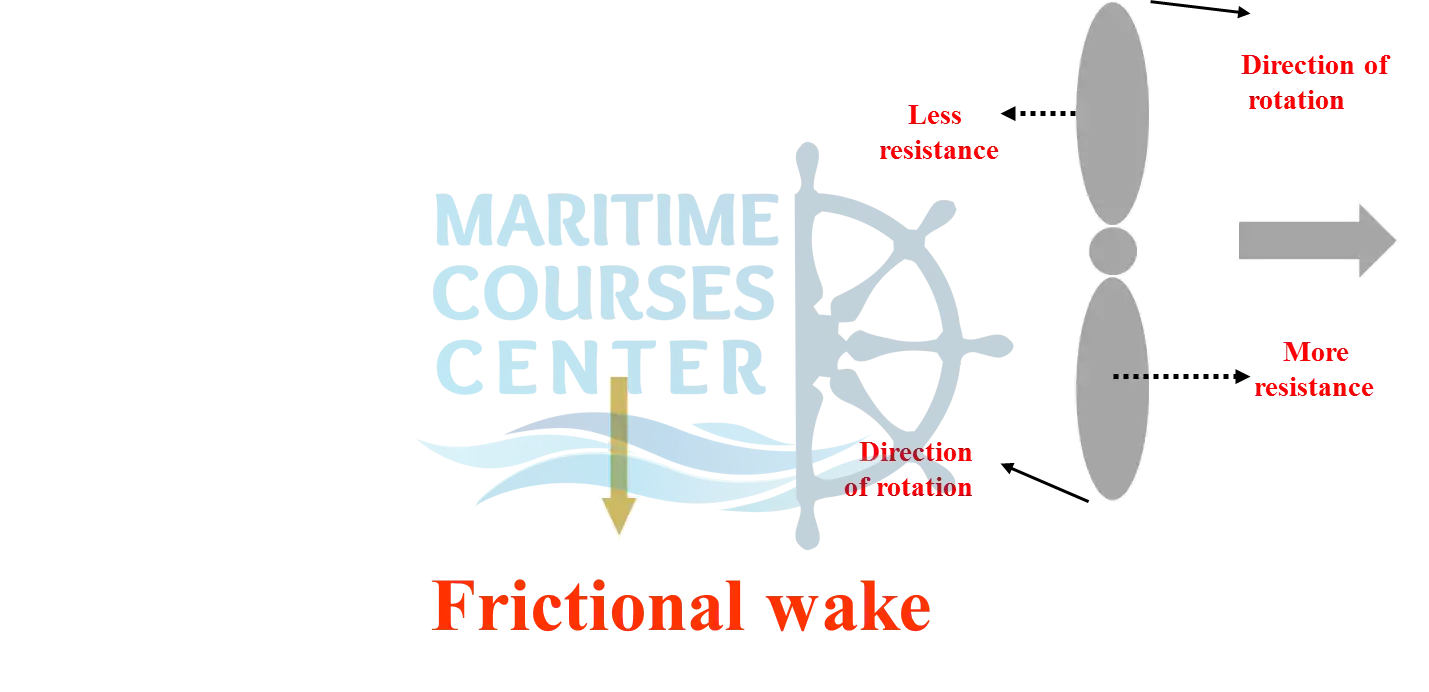
Transverse thrust
